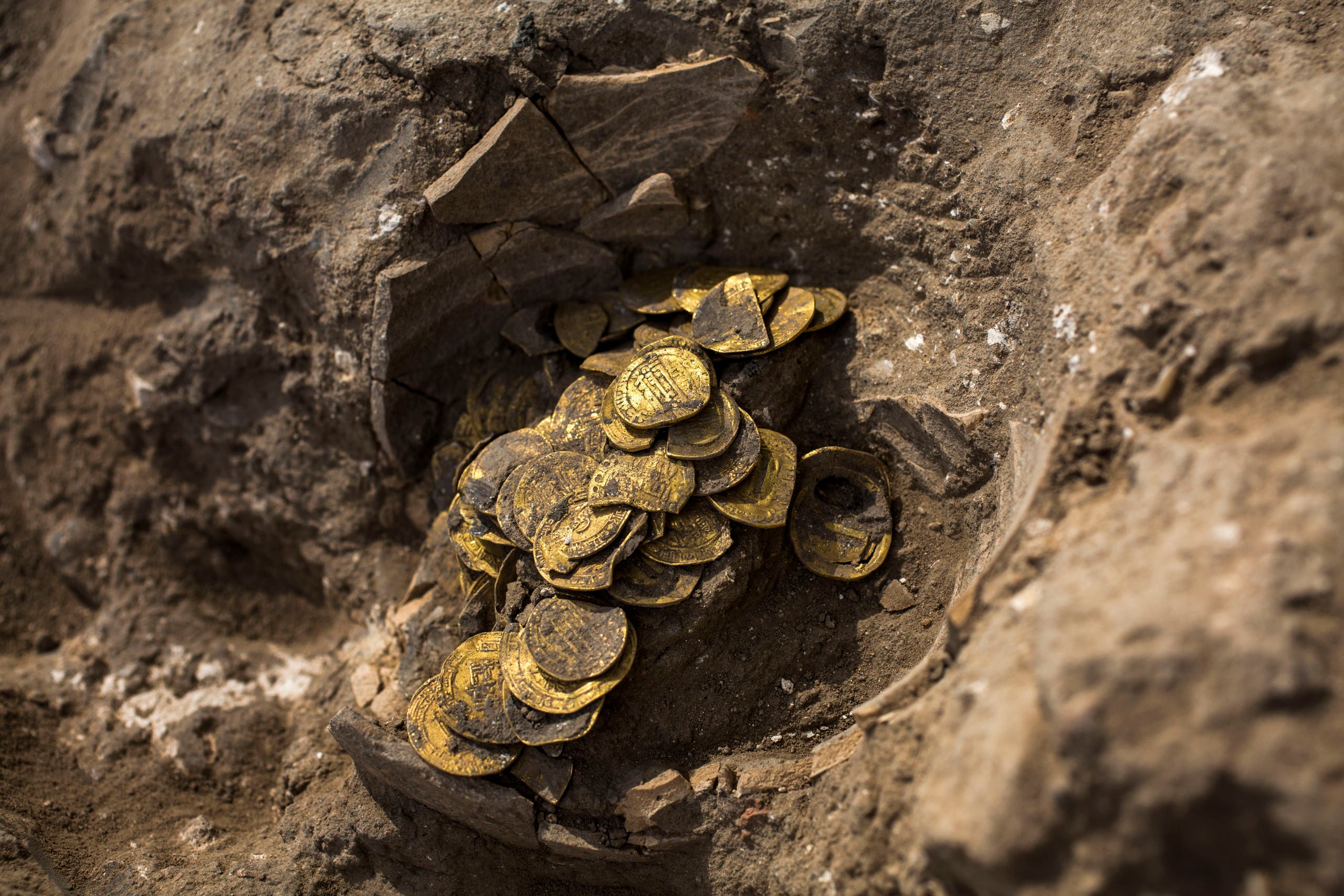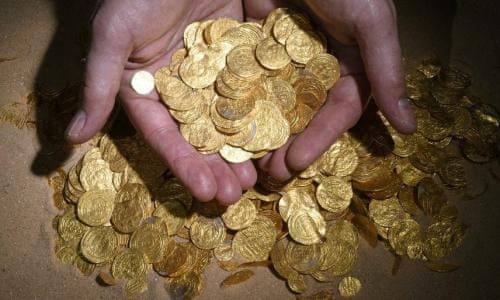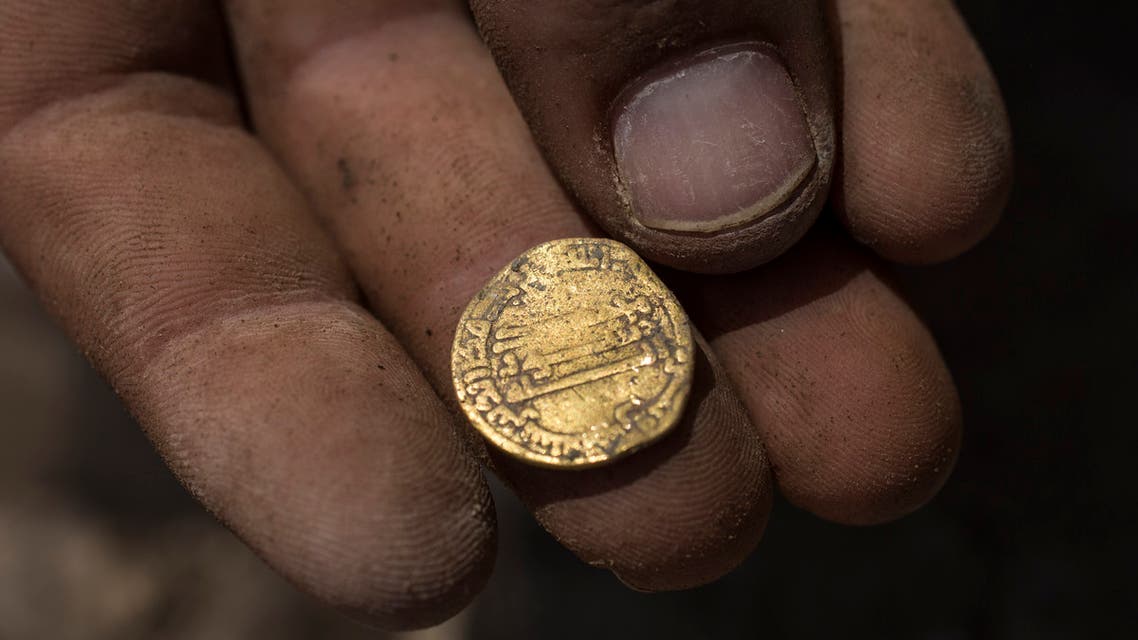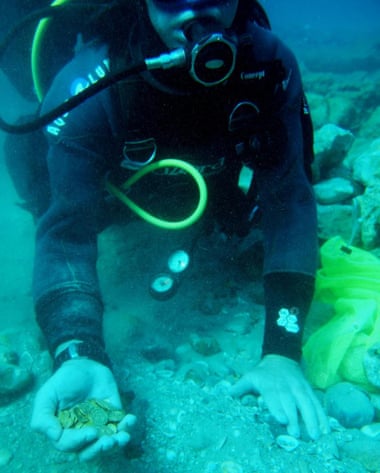No nádhera, ale tohle by pro mě nebylo. Ještě tak do pasu, ale hlouběji už nééééé. Díky za článek. 
1.3.2015 2000 gold coins
Categories: Minting - Numismatics , Calendar , Nálezy nejenom s detektorem na blízkém východě , Nálezy nejenom s detektorem kovů v mořích a oceanech

The hoard of gold coins was found six years ago by divers off the Israeli port of Caesarea. It was pure coincidence. Experts were called in to retrieve more pieces from the sea. The hoard dates back to the Fátima period in North Africa. Two thousand gold coins are owned by Israel.
Originally, the divers thought it was a worthless toy. But then they realised they'd discovered something far more valuable in the ancient port of Caesarea. Their accidental discovery led to the "disappearance" from the seabed of 2,000 gold coins that had been there for a thousand years.
The discovery was reported by the Israel Antiquities Authority. It is the largest coin find to date in Israel. "They were probably transported by a ship that was on its way to Egypt with tax collections," said Kobi Sharvit, director of the Maritime Archaeology Department of the Antiquities Authority.
There has also been speculation about other versions of where the coins were taken at sea. For example, they were money that was intended for the military garrison at Caesarea as ransom or came from a merchant ship that sank while sailing along the Mediterranean. Maritime archaeologists have carried out salvage research to find out more about the treasure.
The coins themselves have different denominations. They date back to the period when the Fatimids ruled North Africa. Their caliphate ended in 1171. The youngest coin dates from 1036. They were all in very good condition as they are almost all made of pure gold. The oldest coin is a quarter dinar minted in Palermo, Sicily, from the second half of the ninth century.
Sharvit thanked the divers who found the coins. They were members of a local diving club. At first they fished just a few coins out of the sea and rushed to shore to inform the instructor. But then they returned to the site of the discovery. They then called in the experts. They gradually pulled 2,000 gold coins out of the sea.
It was pure coincidence that members of a diving club in a Roman-era harbour came across coins weighing nine kilograms. The Israel Antiquities Authority declined to give an estimated value for the treasure found. "In our opinion, it is so valuable that its value is perhaps impossible to quantify," stated Yoli Schwartz, a spokeswoman for the Israel Antiquities Authority. The treasure became the property of the state.



Sources: www.ccn.com, www.theguardian.com, https://english.alarabiya.net/
The article is included in categories:
- Archive of articles > Minting - Numismatics
- Archive of articles > Calendar
- Archive of articles > Archaeology > Finds and rescue research abroad > Nálezy nejenom s detektorem na blízkém východě
- Archive of articles > Archaeology > Finds and rescue research abroad > Nálezy nejenom s detektorem kovů v mořích a oceanech
Post
Hledamcomuzu, jen kdyby si našel po pás ve vodě dvě tři kolečka, tak za měsíc si po patapěčským kurzu, a možná bys tam plaval do teď 




